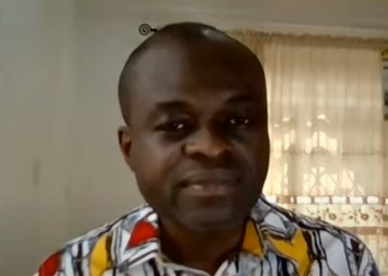Lawyer, Martin Kpebu, has called for the automatic implementation of Article 286 (4) of the 1992 Constitution as a more efficient and effective means of checking corruption in the country.
According to him, unlike the current anti-graft laws, which have done little to curb corruption in Ghana, the activation of Article 286 (4) in a manner that it is activated automatically at the end of a public officer’s term of office, would be most beneficial to the anti-graft campaign.
“That is the heart of the matter that is the one we need to implement, unexplained wealth. Somebody comes into office and then overnight he’s building properties left, right, centre, by the time he’s leaving he’s amassed so much wealth.
“That is what we need to implement; that there will be a law to implement the 286, Clause 4 that, at the time you’re leaving office, you appear before CHRAJ automatically and explain all your wealth,” he said.
Relying on historical precedents, Martin Kpebu noted that the implementation of the law after the Nkrumah regime, saw Ministers and other public officials who had engaged in corrupt activities, being held accountable.
“And then we’re saying that in our history when the Jiagge Commission sat, and history shows that people used to send evidence to the Commission in the night, they’ll go and push it under the doors, so the next morning by the time the commissioners and staff came, they would find envelopes that contain evidence that Mr. X upon becoming Minister built this house, bought this fresh car Bugatti, Lamborghini, you name them, and so investigate,” he said.
He, however, noted that for the law on unexplained wealth to be very effective, the government must find a way to make Ghanaians comfortable with leaking information to the regulatory body in charge of investigating such cases.
“You remember that the last time CDD, the last time I read something about this corruption fight, they said at least 8 out of 10 Ghanaians are scared of reporting corruption and other malfeasances against public officers.
“Most of our population are scared of reporting, so the only method or the more viable way of fighting corruption is that have a standing committee then people can send evidence surreptitiously,” he said.
Latest Stories
-
Joy FM Prayer Summit for Peace ends in electrifying worship and prayer
4 hours -
The Conscience of Leadership: A call to President Akufo-Addo on Ghana’s environmental devastation
4 hours -
Ghanaian youth unaware of their right to hold politicians accountable – Youth Bridge Foundation
5 hours -
Judge delays Trump sentencing for a third time
5 hours -
2024 WAFCON: Ghana drawn against defending champions South Africa in Group C
6 hours -
Photos from DW-JoyNews street debate on ‘galamsey’
6 hours -
Mimmy Yeboah: Blending heritage with global sophistication, confidence redefined through couture
7 hours -
100 Most Influential People Awards 2024: Brain Hill International School’s Director Mary Anane Awuku honoured
7 hours -
Akufo-Addo commissions 97-km Tema-Mpakadan railway line
7 hours -
Majority requests recall of Parliament
7 hours -
Kanzlsperger and Professor Quartey support WAFA with medical Donation
7 hours -
Gideon Boako donates 10 industrial sewing machines to Yamfo Technical Institute
8 hours -
‘Golden Boy’ Abdul Karim Razak honored at WAFU-B general assembly
8 hours -
Buipewura Jinapor secures Vice Presidential position in National House of Chiefs with record votes
8 hours -
2024 election: I want results to come out like ‘milk and honey’ – Toobu
8 hours

